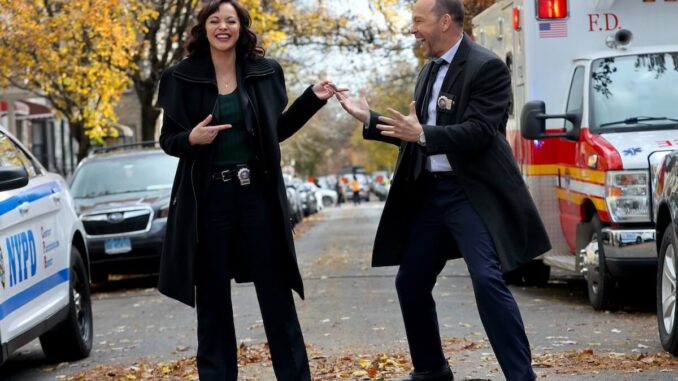
As CBS prepares to bid farewell to its long-running police drama Blue Bloods, fans are left grappling with the emotional weight of this change. After 14 seasons of following the Reagan family through the complexities of law enforcement and family dynamics, the cancellation feels like losing a cherished part of our television landscape. The decision to replace Blue Bloods with S.W.A.T. seems logical on the surface, but it raises concerns about longevity and viewer retention for the new show.
The Legacy of Blue Bloods

Blue Bloods has carved out a unique niche in the realm of police procedurals. Unlike other shows in the genre, it centers around the Reagan family, a lineage of law enforcement officers, each dealing with their own set of challenges and moral dilemmas. This family-centric approach has allowed for rich storytelling, exploring themes of duty, loyalty, and the personal costs of living a life dedicated to public service. The show’s blend of crime drama with family dynamics resonated with audiences, resulting in a devoted fan base that is now mourning its impending conclusion.
The announcement of Blue Bloods‘ cancellation, especially so close to the airing of its 14th season finale, has been met with disappointment. Fans are left wondering what will become of the unfinished storylines and character arcs that have been developed over the years. The show has been a staple for CBS, consistently drawing millions of viewers. Its departure leaves a significant gap in the network’s lineup, one that S.W.A.T. will now attempt to fill.
The Transition to S.W.A.T.
In a strategic move, CBS has decided to slot S.W.A.T. into the coveted 10 p.m. ET time slot following the conclusion of Blue Bloods. This decision is not without merit; S.W.A.T. is already a well-established series that has garnered its own fan base. Currently airing at 8 p.m. on Fridays, S.W.A.T. has averaged around 4.2 million viewers. With Blue Bloods regularly attracting about 4.8 million at 10 p.m., CBS is likely banking on the idea that some of those viewers will transition to S.W.A.T. after Blue Bloods concludes.
The potential for increased viewership is significant, particularly as S.W.A.T. will become the sole police procedural airing on Friday nights. This exclusivity could draw in viewers who are seeking similar content, creating a new routine for audiences accustomed to a late-night dose of law enforcement drama.
Why Fans Are Wary

Despite the logical choice to replace Blue Bloods with S.W.A.T., there is an underlying sense of apprehension among fans. The cancellation of a beloved series often leaves a bitter taste, and the fear that S.W.A.T. might also face an early demise looms large. The show has had its share of ups and downs in terms of ratings and critical reception over the years, which raises questions about its sustainability in the competitive landscape of network television.
Moreover, the essence of S.W.A.T. differs significantly from that of Blue Bloods. While both shows feature a close-knit team navigating the complexities of law enforcement, S.W.A.T. focuses more on tactical operations and high-stakes missions rather than the intimate family dynamics that have been the hallmark of Blue Bloods. This shift in tone may leave some viewers longing for the familial connections and moral dilemmas that defined the Reagan family’s story.
The Future of S.W.A.T.
The upcoming shift for S.W.A.T. presents both opportunities and challenges. On one hand, the new time slot could enhance its visibility and potentially increase its audience. On the other hand, the pressure to meet expectations set by Blue Bloods could be daunting. The show must not only attract former Blue Bloods viewers but also retain its existing audience while expanding its reach.
As S.W.A.T. prepares to take on this new role, it will need to find ways to differentiate itself while also honoring the legacy of Blue Bloods. This could involve deeper character development, exploring the personal lives of the SWAT team beyond their professional duties, or tackling contemporary social issues that resonate with audiences today.
Conclusion: A New Era

As we approach the series finale of Blue Bloods, there is a palpable sense of nostalgia and sadness among its fans. The transition to S.W.A.T. feels like stepping into uncharted territory. While CBS’ decision may be rooted in strategic programming, the emotional connection that viewers have with Blue Bloods cannot be easily replaced.
Ultimately, the success of S.W.A.T. in its new time slot will depend on its ability to engage viewers and create stories that resonate on both a personal and societal level. With the right approach, S.W.A.T. has the potential to carve out its own legacy, but it will always be compared to the show that came before it. As we bid farewell to the Reagan family, we can only hope that the new era of police procedural dramas begins on a high note, one that honors the past while looking forward to the future.
